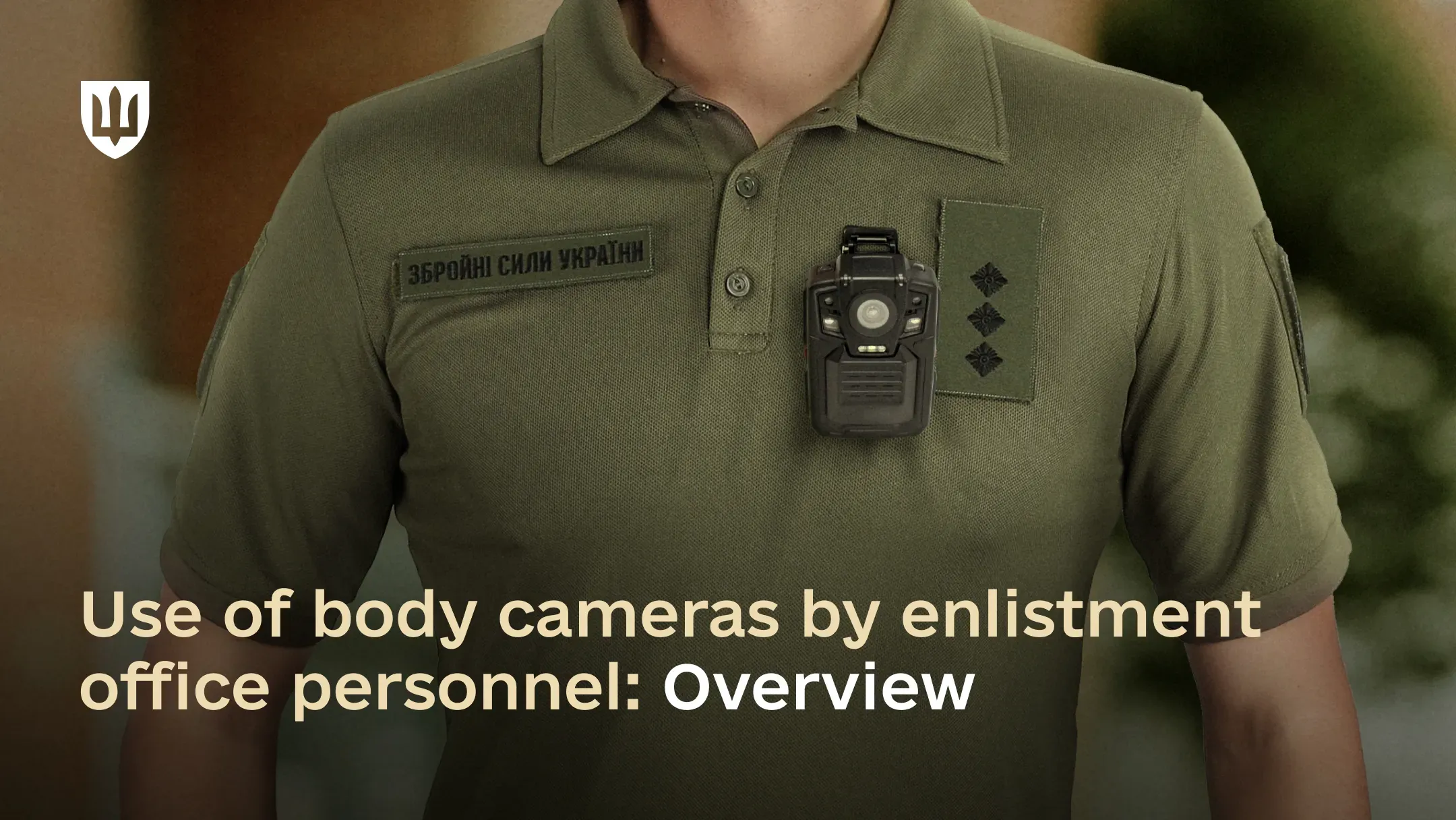Use of body cameras by enlistment office personnel: Overview

Starting September 1, the Ministry of Defence of Ukraine introduced an important mobilization measure – the mandatory use of body cameras by representatives of the Territorial Recruitment and Social Support Centers (enlistment offices) working in Notification Groups. The measure aims to ensure maximum transparency and legality in mobilization, and to enhance the accountability of both enlistment office representatives and citizens liable for military service.
The Ministry of Defence of Ukraine has also begun developing a dedicated IT system to standardize and centralize video recording, preventing any misuse or abuse.
Below is an overview of how body cameras are to be used by enlistment office personnel.
Video Recording Rules
The use of body cameras by Notification Group members is already regulated by law. According to Part 6 of Article 22 of the Law of Ukraine ‘On Preparation and Implementation of Mobilization,’ authorized representatives of Territorial Recruitment and Social Support Centers (TRSSCs) or police officers are entitled to carry out photo and video recording during document verification, the serving of call-up notices, or other administrative procedures.
To provide clear regulation of the process, the Ministry of Defence of Ukraine approved a dedicated Instruction that sets out detailed rules for camera use and establishes consistent standards.
The Instruction stipulates, in particular, that:
- An authorized TRSSC representative using a body camera is required to inform the individuals being recorded.
- Recording starts at the moment TRSSC representatives begin carrying out their notification duties.
- Recording is to be carried out without interruption until the notification procedure concludes, except when recording could capture military facilities or information with restricted access, or when the authorized representative has legitimate personal requirements (e.g., meal breaks).
- During video recording, the portable video recorder must be secured to the uniform (on the chest or otherwise). In cases where high-quality documentation of events is necessary, the service member may hold the portable video recorder in hand.
- Notification Group members are strictly prohibited from deleting, modifying, or otherwise interfering with recordings, turning off the camera, obstructing recording, or sharing recorded video with unauthorized persons.
Oversight and Accountability
Upon completion of their duties, Notification Group members shall hand over the devices to a responsible official appointed by a separate order from among TRSSC personnel. The responsible official is to verify the integrity and operability of the devices and arrange for the automatic export of information to a centralized secure server.
The server shall be administered by the Military Law Enforcement Service (Military Police) of the Armed Forces of Ukraine. This architecture minimizes the risk of unauthorized access to recordings or interference with the system.
Recordings stored on the server of the Military Law Enforcement Service (Military Police) of the Armed Forces of Ukraine will be retained for 30 days from the date of upload. This retention period may be extended in the following cases:
- use of recordings as admissible evidence in criminal or administrative proceedings;
- consideration of complaints against the actions or inaction of authorized representatives while carrying out their official duties;
- provision of information in response to requests from attorneys or law enforcement authorities;
- documentation of extraordinary events involving TRSSC personnel;
- other events that may be used in the course of TRSSC official activities, during internal service investigations;
Control over the use of video recorders shall be exercised by the designated TRSSC official, with the head of the TRSSC exercising oversight of the information obtained.
Any breach of the rules regarding the use of recording equipment shall result in disciplinary liability, which may include a reprimand, demotion in position or rank, and/or referral of materials to law enforcement authorities.
The implementation of body cameras is intended to reinforce discipline for all parties involved, both TRSSC representatives and citizens. Recordings will serve as an objective source of information in the event of conflicts or provocations. For citizens, body cameras will safeguard them against possible abuses, including the improper delivery of call-up notices or breaches of document verification procedures. For TRSSC personnel, recordings shall serve as protection against false accusations or slander that may arise in the course of performing official duties.